China Urges US To Respond Positively To Iran's Concerns In Nuclear Talks
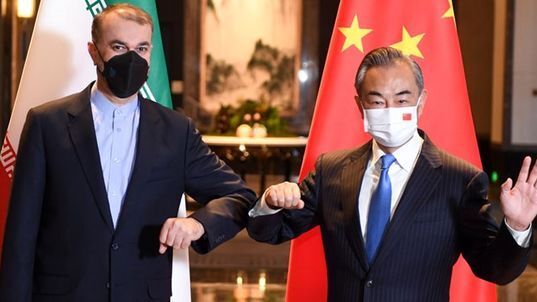
Chinese Foreign Minister Wang Yi says his country has urged the US to respond positively to Iran's "reasonable" concerns in the year-long nuclear talks.

Chinese Foreign Minister Wang Yi says his country has urged the US to respond positively to Iran's "reasonable" concerns in the year-long nuclear talks.
Iran’s ambassador to China, Mohammad Keshavarzzadeh, said on Thursday that Wang made the remarks in a phone talk with Iranian Foreign Minister Hossein Amir-Abdollahian.
He said the BRICS summit – a conference attended by the heads of state of the five member states Brazil, Russia, India, China and South Africa -- the issue of Afghanistan as well as the latest developments in Iran nuclear talks were among the topics of the conversation.
While China supports pushing forward the Vienna negotiations to restore the 2015 nuclear deal, Beijing has kept close communication with Tehran since the talks stalled in March, reportedly because of Iran’s insistence for the removal of its Revolutionary Guard (IRGC) from the US list of Foreign Terrorist Organization (FTO).
Earlier in the week, Tehran again blamed Washington for lack of progress in talks, saying it is ready to resume negotiations to achieve a “good deal”. But a good deal for Iran means something very different from what the US says is possible.
The Biden Administration that came to office with a promise to restore the Obama-era Joint Comprehensive Plan of Action or JCPOA, says that it is ready to lift nuclear-related sanctions imposed by its predecessor but does not want to discuss “extraneous issues,” meaning sanctions imposed by the Trump administration over support for terrorism or other violations by Iran and Iranian entities.
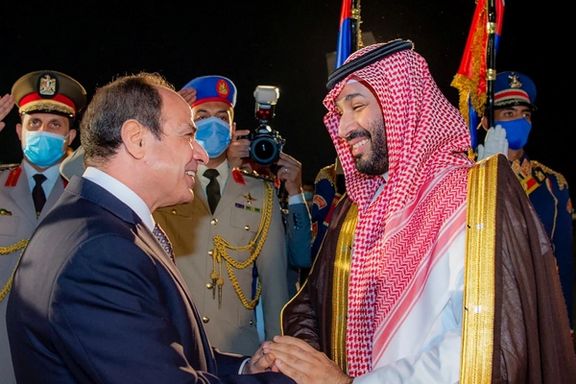
Leaders of Israel and Saudi Arabia see July’s regional trip by United States President Joe Biden as an important part of building a coalition against Tehran.
Yair Lapid, Israeli foreign minister and due to be prime minister when Biden arrives July 13, told US Secretary of State Antony Blinken by phone Tuesday that the president’s trip to Saudi Arabia and Israel “would have significant implications for the region and the fight against Iran, as well as immense potential to significantly improve regional stability and security," an Israeli foreign ministry statement said. Israeli Défense Minister Benny Gantz said Monday that Israel was building a US-sponsored air-defense system aimed at curbing drone or missile strikes by Iran and its allies.
Saudi Crown Prince Mohammad bin Salman was Tuesday in Egypt and Jordan, and is due to visit Turkey, repairing his image after the 2018 killing in Istanbul of Washington Post columnist Jamal Khashoggithat US intelligence concluded was done on the prince’s orders. In a move condemned by human rights groups, Turkey in April transferred the Khashoggi murder case to Saudi Arabia.
The Saudi crown prince, whose government has given significant financial support to the Egypt’s President Abdel Fattah al-Sisi who seized power in 2014 from the elected Muslim Brotherhood government, reportedly agreed $7.7 billion in agreements over food, transport, energy and pharmaceuticals. Egypt, the world’s largest importer of wheat, faces food shortages due to the Ukraine crisis.
While Saudi Arabia quietly favored Israel’s 2020 ‘normalization’ agreements with the United Arab Emirates and Bahrain, brokered by US President Donald Trump and advisor Jared Kushner, it has refrained from establishing diplomatic and formal ties with Israel.
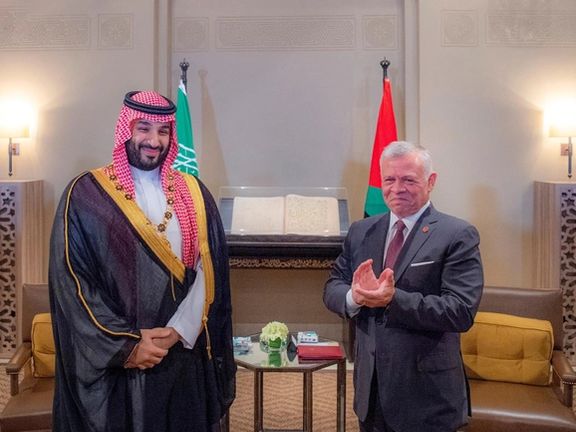
Prince Mohammad’s first visit to Jordan came as Jordan's economy, like Egypt’s, struggles with the knock-on effects of the Ukraine war. Business leaders and officials expressed hope the Saudis will now deliver on past promises of $3 billion investment.
Summit Next Month
The Saudi crown prince and Jordan’s King Abdullah also discussed a summit next month where Biden will meet leaders of the six Sunni-led states of the Gulf Corporation Council, as well as Iraq, Jordan, and Egypt. King Abdullah is credited with the phrase ‘Shia crescent,’ which he used in 2004 to describe Iran’s growing regional influence.
Israel and the UAE inked May 31 a free-trade agreementfollowing up their 2020 ‘normalization’ agreement, and March’s meeting in Negev, Israel, of the foreign ministers of Israel, Bahrain, Egypt, Morocco, the UAE and the US, is planned as an annual event.
Israel and Saudi Arabia share concerns over Iran’s foreign policy os supporting militant proxies in the region, including Hezbollah and Ansar Allah in Yemen and have supported those who were willing to oppose Iranian influence. The Israeli and Saudi leadership have also opposed the 2015 Iran nuclear deal, from which Trump withdrew the US in 2018 and which the Biden administration says it wants to restore.
But while Biden came to office committed to recalibrating Washington’s links with Saudi Arabia, especially in asserting human rights, and initially dealt with Riyadh frostily, relations have thawed, partly as the US feels the need for increased Saudi oil exports to bear down on the rising cost of gasoline.
Domestic politics are also at work in Israel. The government Monday called a national election – the fifth in three years. Prime Minister Naftali Bennett has trumpeted a more assertive approach to Iran than opposition leader and former premier Benjamin Netanyahu, who hopes to return to power.
While there are Israeli security experts who see Bennett’s approach as counter-productive and who disregard talk of an Israeli-Sunni alliance, Bennett has used the phrase ‘Octopus Doctrine’ to describe drone or sabotage attacks on Iran’s nuclear and military sites, a campaign widely believed to also include killing scientists, engineers, and military officers.
With reporting by Reuters
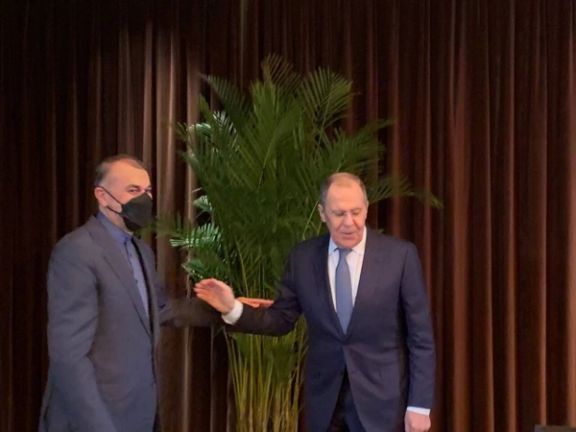
Russian Foreign Minister Sergei Lavrov is due in Iran on Wednesday for an official visit, Tass news agency quoted Russia's ambassador in Vienna as saying.
According to Iran’s government news agency IRNA, the visit is aimed at boosting trade and energy cooperation as the two countries grapple with Western economic sanctions.
Lavrov is scheduled to meet Iranian Foreign Minister Hossein Amir-Abdollahian on Thursday and discuss expanding cooperation with the Eurasian region and the Caucasus, Iran’s Foreign Ministry said.
An exchange of opinion on a number of pressing international issues, including the Vienna talks to revive the Joint Comprehensive Plan of Action (JCPOA), as well as the developments in Ukraine, Syria, Afghanistan, Transcaucasus, Yemen and the Caspian Sea area will be discussed, the Russian ministry’s spokeswoman said.
Enjoying huge oil and gas reserves, the two countries are hit by sanctions that limit their ability to export their output. Last month, Moscow said Russia and Iran had discussed swapping supplies for oil and gas as well as setting up a logistics hub.
Earlier in June, Iran and Russia reached an initial agreement for launching a joint shipbuilding venture in the Caspian Sea region.
In January, Iran's President Ebrahim Raisi visited Moscow, where he presented his counterpart Vladimir Putin with draft documents on a 20-year strategic cooperation that would cement collaboration.
The visit took place in an atmosphere of heightened public debate over the Raisi administration's emphasis to reach a 20-year deal with Russia similar to the 25-year cooperation pact with Beijing signed in March which became operational earlier in the year.
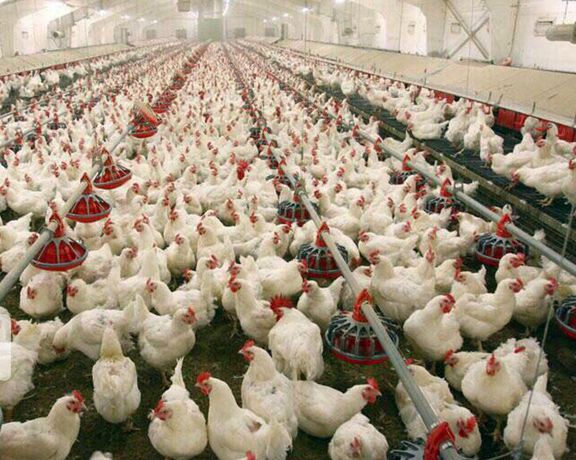
Iraq has banned the import of poultry and eggs from Iran as the country is eying to become one of the exporters of meat and avicultural products in the region.
According to an article published in Shargh Daily on Monday, the head of Iran’s Broiler Breeders Association, Mohammad Yousefi, says as the price of animal feed has increased by sixfold, poultry farmers are forced to sell their chickens at a loss in domestic market while Iran's export markets are becoming more and more limited.
Iraq, which is Iran's second largest export market overall after China with at least three to four billion dollars of trade per year, plans to reduce its imports to support its own producers.
Hamid Hosseini, a board member of the Iran-Iraq Chamber of Commerce and Industry, told Sharq that the Iraqi Ministry of Agriculture had repeatedly protested low tariffs on agricultural imports from Iran and called on the government to increase import tariffs.
Shargh also quoted Mehdi Karamipour Moghaddam, a former secretary general of the Iran-Iraq Joint Chamber of Commerce, as saying that Iraq has set up more than 7,000 poultry farms with equipment purchased from Iran, resulting in an increase of egg production in the country from 1.5 billion in 2019 to 7 billion in the previous year. “Iraq almost no longer needs Iranian chickens and eggs, and sometimes issues short-term import permits” to meet temporary demands in the market.
Earlier in the week, Shargh reported that the sharp rise in animal feed prices has brought about a wave of bankruptcy among cattle breeders, forcing them to sell their starving or half-dead cows at lower prices to slaughterhouses.
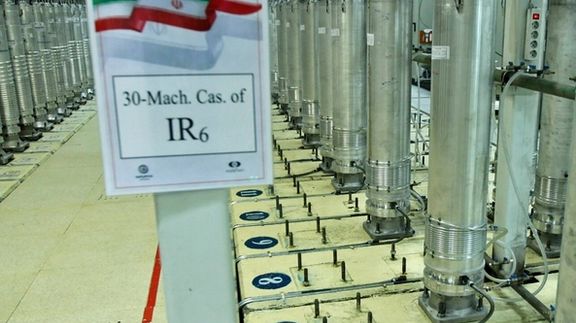
Iran has begun to employ advanced IR-6 centrifuges to enrich uranium at its underground Fordow site, the International Atomic Energy Agency reported Monday.
A confidential report seen by the Reuters news agency noted that the centrifuges were fitted with “modified sub-headers,” which allow rapid switches in enrichment levels, and that Iran had not as yet informed the agency (IAEA) what level of enrichment it planned.
The move follows a vote June 8 at the 35-nation IAEA board condemning Iran over failing to satisfy the agency over queries about uranium traces found at three sites linked to past nuclear work.
In response to the board’s resolution – passed against Chinese and Russian opposition – Iran’s acting IAEA ambassador Mohammad Reza Ghaebi said Tehran would make a “firm and proportional” response. Iran quickly informed the IAEA it was installing IR-6 centrifuges at the Natanz site and was removing some of the agency’s monitoring equipment.
Tehran told the IAEA Monday it had begun Sunday to feed uranium hexafluoride (UF6) gas into centrifuges at Fordow, a site dug into a mountain to shield it from attack. Iran earlier told the agency that its two cascades at the site would be used to enrich to 5 percent or 20 percent. Enrichment to 60 percent, close to the ‘weapons grade’ of 90 percent, has been done at Natanz.
The latest expansion in Iran’s nuclear program comes with a pause since mid-March in year-long talks in Vienna between Iran and world powers aimed at reviving the 2015 Iran nuclear deal, the JCPOA (Joint Comprehensive Plan of Action). Iran began breaching JCPOA limits in 2019, the year after President Donald Trump withdrew the US from what he called “the worst deal in history.” The JCPOA barred the use of relatively advanced IR-6 centrifuges, all enrichment above 3.67 percent, and any enrichment at Fordow.
‘Terrorist octopus’
With no sign of talks resuming to revive the JCPOA, Israeli Prime Minister Naftali Bennett has trumpeted what he calls the ‘Octopus Doctrine’ by which Israel, as he told a parliamentary committee this month, “has taken action against the head of the terrorist octopus and not just against the arms as was done in previous decades.”
The ‘Octopus Doctrine’ has seen drones and cyber-sabotage used in attacks on Iranian nuclear and military facilities, and is widely believed to have involved killing Iranian scientists, engineers and officers. Israeli media Friday warned tourists in Turkey not to leave their hotel rooms to avoid attacks and kidnapping by Iranian agents.
Accused domestically by both JCPOA supporters and opponents of lacking a ‘plan B’ should the nuclear talks fail; the Biden administration is reportedly sticking to its insistence on keeping Trump’s designation of Iran’s Revolutionary Guards as a ‘foreign terrorist organization.’ An Iranian initiative to restart the Vienna process reportedly involved Iran dropping its demand that the IRGC be delisted but insisting US sanctions be lifted from its construction arm, Khatam-al Anbiya.
With President Joe Biden due to visit Saudi Arabia and Israel in July, the US is encouraging greater coordination between the Israelis and some Gulf Arab states in defense against missiles and drones either operated by Iran or supplied to allies, Hezbollah, Ansar Allah (known as the Houthis), and Iraqi groups. Despite his stated aim of renewing the JCPOA, Biden is drawing closer to JCPOA opponents Israel and Saudi Arabia while Iran continues to expand its nuclear work.

Qasem Mohebali, an analyst in Tehran, says President Joe Biden is changing his approach and intends to put Iran under siege by creating a regional coalition.
According to Khabar Online, this is a U-turn by Biden who has so far not been attaching importance to Washington's old allies in the region. It appears that both sides have deemed the current situation good for mending their relations.
Mohebali said in his interview with Khabar Online that the developments in Ukraine as well as the suspension of Iran's nuclear negotiations have played their parts in bringing back Washington to its old policy of close ties with Saudi Arabia. The result, said Mohebali, will be a coalition between the United States, Israel and Saudi Arabia and other regional players.
During Biden's upcoming visit to the region, Israeli's will have a chance to convince Washington that returning to the JCPOA is meaningless and the US should exert more pressures on Iran, Mohebali said, while the United States could be able to convince Israel to refrain from provocative actions against Tehran.
As these concerns were being aired in Tehran, Israeli defense minister Benny Gantz told the Knesset on Monday that a regional air defense coalition is being formed with US leadership. The effort, he said, has already stopped some Iranian attacks.
This comes while the prospects for reviving the 2015 nuclear deal is becoming increasingly weaker, while Iran desperately needs to revive the JCPOA and have US sanctions lifted in a bid to improve its ailing economy.
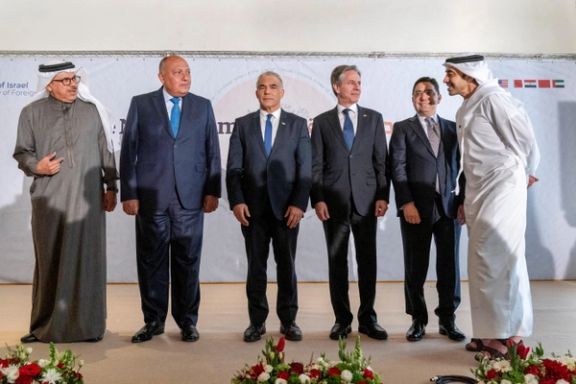
A former member of the Iranian parliament's National Security and Foreign Policy Committee, Hshmatollah Falahatpisheh, told Nameh News in an interview on June 20, that Iran will certainly be the big loser if no nuclear deal is reached.
Meanwhile, referring to Iran's defiant reactions to the June 8 IAEA resolution that condemned Tehran's lack of cooperation with the International Atomic Energy Agency, Falahatpisheh warned that "it is not the right time for Iran to stand against the IAEA. This will make Tehran's situation even worse."
Pointing out Tehran's weak position, Falahatpisheh said: "Once we could determine our own fate at the negotiating table, but now we have to wait and see what decisions are being made by lobbyists behind the scenes at the IAEA Board of Governors.
Explaining why Iran will be the loser if the negotiations are not fruitful, Falahatpisheh said: "All the agreements Iran signs with other countries, including long-term 20-year contracts, are being concluded under sanctions, so these cannot serve Iran's interests." He added that Iran missed all the chances for a rapprochement with the United States before the war in Ukraine. Now, all countries including Russia only think of their own interests."
He criticized Iranian officials' inaction in the current situation by saying, "It is as if they do not have a good understanding of the situation and do not see the weakening of Iran's currency on a daily basis. While prices are rising, the government increases taxes and redoubles the pressure on the people."
While Falahatpisheh stressed that the government should do away with slogans and take important political decisions to solve the country's problems. Meanwhile, lawmaker Somayeh Rafiei said in an interview with Rouydad24 on Monday: "The people can hardly tolerate the situation any longer…and they
are looking for results and the government needs to introduce essential changes."